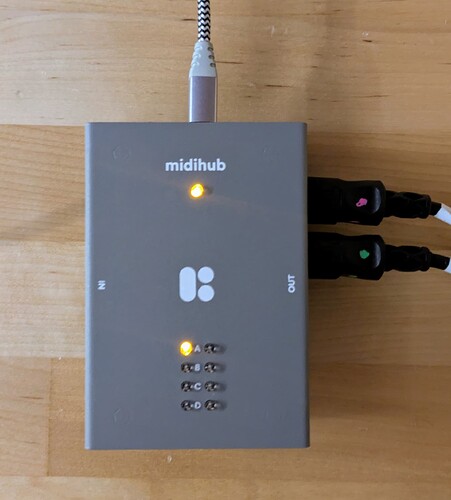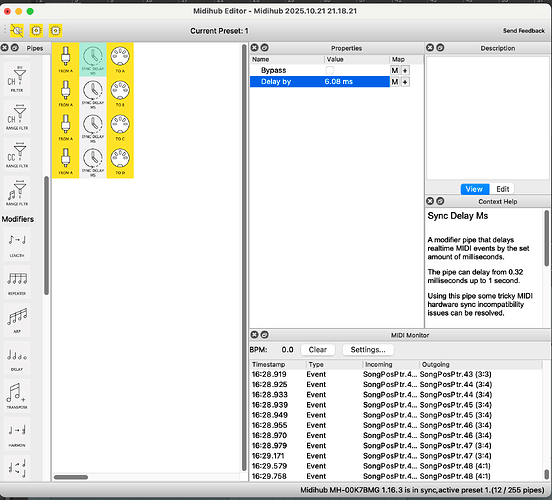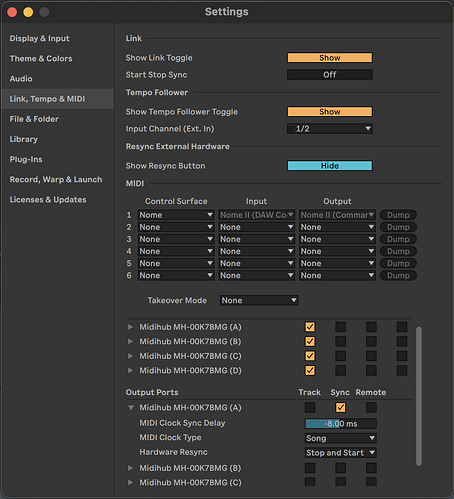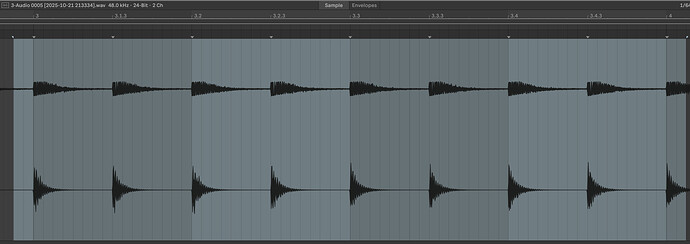I’m kinda proud of this easy and relatively inexpensive solution that I just came up with that allows you to do independent latency compensation on up to four different hardware devices, and that makes for easy alignment to your DAW’s grid. I’ve only tested this in Ableton but I assume it is as easy to do in other DAWs.
The solution seems obvious in retrospect, and the critical piece of gear has been sitting in my junk drawer for almost 5 years, waiting for it’s moment in the sun…
The answer is…the Blokas MidiHub!
Solution
- Setup a preset with inputs from Input USB A to each of the MIDI Output ports, but with a “Sync Delay MS” pipe in between each as shown in the screenshot below
-
MidiHub sync delays are only positive, so leave the device with the highest latency (TR-1000 in this case) to zero delay. Give all the less latent devices a delay that equals the difference between their latency and that of the TR-1000. See image above.
-
In Ableton Live 12 give the MidiHub output a negative latency compensation equal to the TR-1000 (~7-8 ms is what most of us have found in LayeredGens).
- Enjoy perfectly aligned, on the grid beats with up to 4 hardware devices and as many software devices as your system can handle. In this image the left channel is a snare on the Rytm MkII and the right channel is a snare on the TR-1000
NOTE: if you have a master clock, like a Nome II, that you want to use it’s easy to work it into the signal chain.
I cooked this up with the TR-1000 in mind, but this is useful for any combination of MIDI gear you may be juggling in your setup.
Cost of this solution: €164,00 / ~$190 USD
Comparative devices with independent latency compensation of 4 or more MIDI outputs:
- Floating Point MultiClock – $629 USD
- Squarp Hapax – $1299 USD
- Cirklon – $2099 USD



